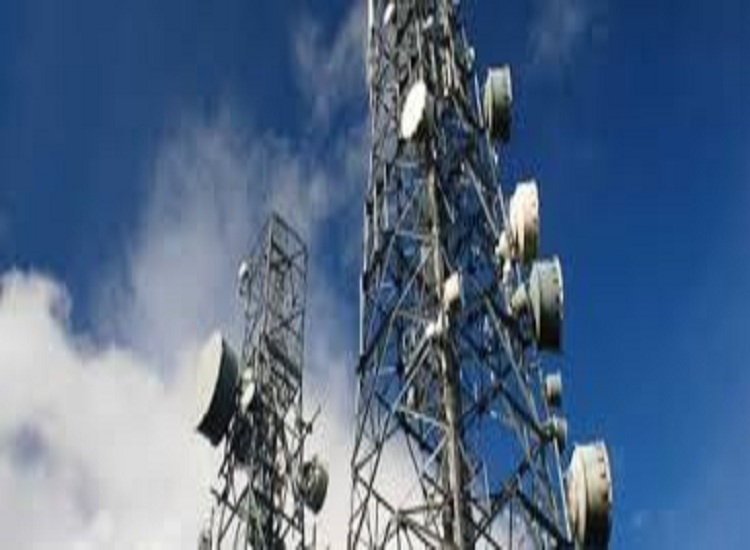Telecom
NCC Backs eBusinessLife’s Event to Review 20 Years of GSM, Gains & Pitfalls

With so much happening in the telecommunications industry, and the expectation of the Fifth Generation (5G) technology services in Nigeria, eBusiness Life Communication Limited has put things in place for an event that will draw stakeholders to review the gains and pitfalls of Global System for Mobile communication (GSM) in the past 20 years.

The event will also preview the gains, expected challenges and building blocks to be put in place before the 5G licences are granted.
The event, which has now received the Nigerian Communications Commission (NCC) backing, is billed to hold on November 5, 2021 at the Oriental Hotel, Lekki Road, Victoria Island Lagos.
The nod from the nation’s telecommunications regulator underscores the need for a stakeholder discussion on the issues on the event front burner.
According to the organisers, the forum will seek to answer questions that include how well Nigeria has fared in the past 20 years of GSM evolution in the country.
Publisher and CEO of eBusiness Life, Mrs Ufuoma Emuophedaro raised further questions: “For GSM @ 20, what mistakes have we made, and can they be corrected now? How can we achieve the ubiquitous coverage we need? Is our infrastructure situation what it should be, and how do we better it?
On 5G, how ready are the service providers? What are the expectations from the regulator and other public sector stakeholders? How ready are entrepreneurs and tech Startups? How ready are other sector operators to latch unto revolutionary 5G technology? Are there policies in place that will ensure that the consumers are well protected in terms or charges and service provisions? Are there collaborative opportunities? What do we expect and how do we tackle the expected rise in cyber insecurity that the technology will attract?”
Having cleared some air on the erroneous negative beliefs about 5G technology, Mrs Emuophedaro said it is time to highlight the benefits, opportunities and positive impacts the technology will have on the nation’s technological advancement, and the economy at large.
With the theme, “GSM @ 20, Setting The Stage For The 5G Journey – Requirements, Deployment and Challenges”, the event will afford stakeholders the opportunity to discuss the level of preparedness of ICT stakeholders to embrace the challenge of being pivotal to the stability and growth of all other sectors through 5G deployment.
The event, which is expected to have the Honourable Minister of Communications and Digital Economy, Dr. Isa Pantami; EVC/CEO of the Nigerian Communication Commission, (NCC) Prof. Umar Danbatta; Chairman, Senate Committee on Communications, Senator Oluremi Tinubu; and Chairman House of Rep. Committee on Communications, Hon. Akeem Adeyemi, as well as Captains of industry in attendance, will bring together Mobile Network Operators, telecom service providers , infrastructure companies, cybersecurity companies, among other to discuss the past, the present and the future of digital communication in Nigeria.
Telecom
MTN Nigeria Wins Award for Best Use of Data @MarkHack 4.0 Awards Night

MTN Nigeria’s commitment to digital innovation took center stage at MarkHack 4.0, the annual marketing and technology conference held at Landmark Event Centre, Victoria Island, Lagos, on Friday, May 23, 2025, with the theme ‘Experience Ignited: Fueling the Customer’s Journey’.

L-R: Akinbulejo Onabolu, Head, Enterprise Segment, MTN Nigeria; Eneyi Obi, Global Chief Marketing Officer, Rise; Tobi Olanisimi, Marketing Manager, AB InBev; Martha Kayode, Marketing Head, PZ Cussonz; Sulaiman Shaibu, CEO, BFT Consulting Service and Daniel Adeyemi, Managing Editor, Condia Business at the MarkHack 4.0 Conference held at the Landmark Event Centre, Victoria Island, Lagos on Friday, May 23, 2025.
In a celebration of innovation, technology, and storytelling, the company also took home the award for Best Use of Data in a Marketing Campaign at the Nigeria MarTech (MarkHack 4.0) Awards Night. This award recognizes brands that have successfully transformed data into compelling narratives and actionable insights to meaningfully engage their audiences.
Akinbulejo Onabolu, Senior Manager, Segment Management, Enterprise Business at MTN, joined a panel to discuss the power of immersive technologies on consumer behaviour. Drawing from MTN’s launch of its 5G Digital Experience Centre in Abuja last year, Onabolu highlighted the rapid evolution of immersive technologies such as Virtual Reality (VR) and Augmented Reality (AR) stating “Our 5G centre is a sandbox for our customers to come and see how technology can shape things. At the launch event, we unveiled a smart city to customers, clients and dignitaries in attendance, with gaming and other tech experiences.”
On the intersection of data, AR and VR, he added: “Co-creating with MTN takes our minds to a platform where different partners, companies and creators can bring their buildings, products and businesses for people to see via augmented reality and connectivity, just swiping through and following through that journey.
“As a part of impacting our customer’s lives, a few years ago, we also played around with the Metaverse and we ended up creating some of our back-office processes with some of our customer journeys on augmented reality and virtual reality such that a customer somewhere can engage with a virtual agent to solve real life problems and integrating that back into our operating systems. As an organization, at a lot of our events, you will find a lot of AR and VR experiences.”
Speaking on how MTN is embedding immersive technology into its day-to-day operations, he explained that the company is prioritizing both internal capability development and external engagement. “85% of our organization has undergone extensive training on AI and that already is a great addition to our daily lives. We’re using it to do things differently, developing user journeys and brainstorming different things. In terms of Augmented Reality and Virtual Reality, we are working with organizations to develop training programs which we use internally.”
He described the bases for this tech as stable connectivity, high bandwidth, high speed and low latency. “Over the past year, we’ve doubled our 5G capacity across the entire country. Wherever you are, you’ll probably start to pick up 5G. With our FibreX service, we’re going way beyond connectivity to create the systems and platforms to support the ecosystem, AR and VR. In addition to this, we’re also engaging regulatory systems to start to tease this out and build the proper governance.”
The session, moderated by Daniel Adeyemi, Managing Editor at Condia Business, also featured insights from leaders in FMCG, consulting, and global marketing, all underscoring the transformative potential of immersive technologies for Africa’s future.
Telecom
MTN Nigeria Invests ₦900Bn in 2025 to Boost Network Quality in Lagos & Abuja

MTN Nigeria has announced a massive capital expenditure (CAPEX) drive for 2025, nearly doubling its investment to almost 900 billion Naira, as it seeks to significantly enhance network service quality in major cities like Lagos and Abuja and extend improvements to other areas.

Karl Toriola
This financial commitment, up from a combined total of approximately 440 billion Naira spent in 2023 and 2024, was detailed by MTN Nigeria CEO, Dr. Karl Toriola, during a recent interview on Arise TV.
Toriola highlighted that a key focus of the increased CAPEX will be on “putting additional capacity in a city like Lagos, particularly in Abuja, where you have a lot of buildings coming up, you need additional sites because there are coverage issues.”
Beyond these critical urban centres, the investment aims to bolster network resilience and ensure power stability for its infrastructure nationwide. This includes proactively addressing site outages by ensuring timely payment for operational necessities such as diesel for generators, a persistent challenge in the Nigerian operating environment
The CEO outlined the comprehensive nature of the upgrade process, which involves “placing orders formally, opening letters of credit, and then the equipment gets shipped in and installed.” He added that where necessary, MTN will be “acquiring new sites” and “laying fiber to the base station to create better stability.”
While the immediate CAPEX is geared towards improving existing service quality and capacity, this investment aligns with MTN’s broader goals, which include enhancing financial inclusion in underserved rural areas, suggesting a long-term vision for network expansion and service improvement that extends beyond metropolitan areas.
Customers are expected to begin experiencing the positive impact of these investments with a “significant improvement in quality of service” anticipated by the end of the second quarter or early in the third quarter of 2025, according to Toriola.
Telecom
Airtel’s AI Spam Alert Flags 9.6m Spam Attempts

Airtel Nigeria, telecom service provider, has announced that its AI-powered Spam Alert Service issued over 9.6 million spam alerts between March 13 and May 20, 2025.

As part of its ongoing commitment to protecting customers from unwanted and potentially fraudulent communications, Airtel designed the AI Spam Alert service to analyze traffic patterns and detect anomalies.
In the period since launch the AI pinpointed a total of 9,667,008 SMS as potential spam messages in the two months after its launch.
Of these, the system identified 528,080 on-net (Airtel-to-Airtel) and 9,138,928 off-net (from other networks) numbers as suspected spam messages, demonstrating the scale of the threat and Airtel’s advanced processing capability.
Airtel Nigeria is a subsidiary of Airtel Africa.
Commenting on this development, Dinesh Balsingh, CEO, Airtel Nigeria, restated Airtel`s commitment to protecting its customers.
“This milestone demonstrates the strength of our AI-driven infrastructure in combating the growing menace of spam and scam calls. At Airtel Nigeria, we are focused on connecting Nigerians and ensuring their safety and confidence while using our network.
“We understand that trust is the cornerstone of digital communication. That’s why we’ve invested heavily in intelligent systems that not only detect potential threats but also learn and evolve with data. As threats become more sophisticated, so will our solutions. As a company, we remain focused on leading the industry in innovation and customer satisfaction, ensuring that every Nigerian can enjoy a safer and smarter digital experience,” Mr. Balsingh said.
The Spam Alert Service is part of Airtel Nigeria’s broader strategy to integrate artificial intelligence into its core offerings to deliver smarter and safer experiences for its customers across the country.
Recall that the Spam Alert Service was launched on March 13, 2025. A groundbreaking and free solution from Airtel, it notifies users in real-time of suspected spam SMS messages by analyzing over 250 parameters.
The Airtel AI Spam Alert Service is available to all Airtel subscribers on smartphones and feature phones.

 E-Financial3 days ago
E-Financial3 days agoEFCC Recovers over N20Bn Stolen by Hackers from 6 Banks in Nigeria

 Telecom3 days ago
Telecom3 days agoEngr. Ikechukwu Nnamani Receives Two Prestigious @ABoICT Awards

 E-Financial2 days ago
E-Financial2 days agoFidelity Bank Plc Wins 2025 DBN Innovation Award for MSME Support

 E-Business2 days ago
E-Business2 days agoNigeria Among Hotspots as Kaspersky Warns of Rising Ransomware Threat in Africa

 Telecom3 days ago
Telecom3 days agoFG to Deploy 80 Percent of 7000 Telecom Towers to North

 E-Financial3 days ago
E-Financial3 days agoPonzi Scheme Operators Risk N10m Penalty, Others- IST Chair

 News3 days ago
News3 days agoEFCC Recovers Funds, Arrests Suspects in N1.3 Trillion CBEX Crypto Fraud

 E-Financial3 days ago
E-Financial3 days agoUBA Launches *919# Advance Top-Up Feature for Instant Access to Customers




























